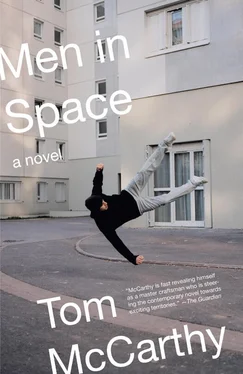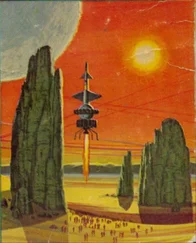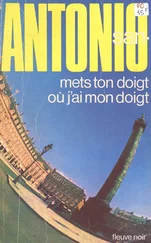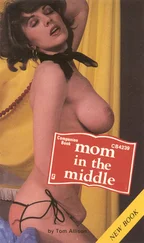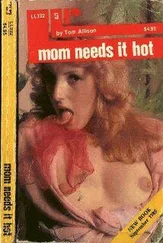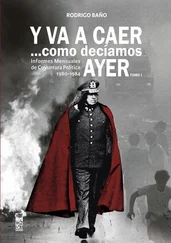He’s been wondering, ever since the phone call one hour ago, why there’s been this sudden lapse in caution. They didn’t take the Helena route to which he’s grown accustomed since mid-January — just called him right at home and told him to meet them here, behind the Castle, up in embassy land.
“The whole thing’s moved to Amsterdam,” Milachkov mur murs from the front. Next to him, Ili’s shoulders are quite still, impassive: broad and vulnerable, like that day in the car market — what, three months ago now. “If we know that, the police know it too. They’re not interested …”
“What?” Anton leans further forwards. Mila’s still talking, but he hasn’t turned his head even half round and there’s a loud rattling coming from the car’s boot, muffling his words.
“The police aren’t interested any more. In us.”
“Oh.” No one seems very happy here. Ili and Mila are gawping straight ahead; Jana and Koulin are glumly staring through their windows, away from him. It’s as though they all feel hurt, abandoned by this new lack of interest in their activities. They’re driving uphill along Mariánské Hradby, alongside the Castle garden’s north wall. Birch trees peep above it, dwarfed by evergreens. Behind these, the backs of the Castle’s offices and the giant, Gothic arches of St Vitus’s Cathedral. To their right, a carpet of fresh grass has unrolled between the tram tracks. A tram’s sliding over this beside them but they’ve been going slightly faster, pulling away from it — although now the tram’s catching up as Mila slows down for a turning car and even, a few seconds later, overtaking them so now it seems they’re going backwards. Mila steps on it again and the car claws ground back, as though measuring its own movement against the red-and-white tube, the indifferent faces in it — all rather disorientating, two moving objects; Anton feels the need for something to hold on to, solid earth … He looks left again, to the Castle wall. This section’s lower, shabbier, with ivy spilling over it and glass nurseries with tomatoes standing in long grass behind it, food for the visiting dignitaries; then, further along, cherry trees in bloom. First ones he’s seen this year. That means it’s spring, officially. They’ve blossomed early: it’s only mid-March …
Milachkov changes gear as the road steepens; whatever it is that’s rattling in the boot slides back and clunks against the side. They’re still passing the Castle. Largest administrative complex in the world, bigger than even the Pentagon. Helena told him that: she’d read it in an encyclopedia. Somewhere in there, in some minor office off some secondary or tertiary corridor, they’ll have her letters: twenty, thirty of them, all filed under Ignore. And then in the American Embassy tucked beneath the Castle, there’ll be another letter being processed for him, reminding him that time’s running out on his visa. He’ll have to go there and explain, ask them for an extension. Beyond the Castle there’s the Strahov Tower; past that, the football stadium. Anton leans forwards again and says to Mila:
“There’s a top game Saturday. Czechoslovakia versus Cyprus. World Cup qualifier. Probably the only chance you’ll ever have to see a team that has no country play. Let’s go.”
“… on.” More rattling.
“What?”
“Sure.”
“We’ll meet on Újezd again, by the funicular? Mila?”
“OK.”
What’s wrong with this lot? The lights above the stadium crane in, as though trying to get a better view. Anton announces to the car:
“I’ve got a joke. It’s the Olympics, the Moscow Olympics, 1980. The opening ceremony. Brezhnev’s reading a speech his advisors have written for him. ‘O!’ he shouts, raising his finger in the air. ‘O! O … O!’ he thumps his hand down on the rostrum. ‘O!’ And an official whispers in his ear: ‘No, comrade, that is the Olympic logo. The speech begins beneath.’ ”
Silence, just total silence. Koulin and Janachkov have turned their faces so far from him that they seem to have acquired owls’ necks. Ilievski’s back is motionless, like the back of one of those half-dead Soviet premiers. Anton asks them:
“Where are we going?”
“Up here,” Milachkov, utterly un-owlish, refuses again to turn his head the slightest bit. “Out a little.”
“Out? What, to the airport?” He can see a plane overhead, descending towards Ruzyn? wheels stretching out like hawks’ or eagles’ feet.
“On a journey. Sort of … after …” This clunking in the boot’s annoying.
“What?”
Koulin takes over: “There’s this guy, this Turkish guy — you speak Turkish, right?”
“No.”
“Greek,” Janachkov mumbles, still facing away.
“Right, Greek. That’s what I meant. You speak Greek …”
“A tiny bit. My wife’s the one who …”
“So, there’s this guy we’re doing business with, and he’s Greek, like I said, and we need you to cut this deal with him.”
“What deal? What type of business?”
“Just business. You know …”
“You have to brief me if I’m going to negotiate. And anyway, my Greek’s really not good. Three or four phrases is all. Maybe it’s …”
“It’s pretty straightforward. You just need to fix a price for some stuff he’s exporting. Keep him below half a million.”
“What stuff?”
“Oh, machinery. Nothing interesting.”
“Well, I’ll try. Maybe he’ll speak English. Or German. Or whatever …”
They’ve cleared the castle complex now. You can see right back down into the city’s bowl. There’s Staré Město, all the golden roofs, the river, the television tower. The green awning of the Hotel Savoy blocks it out, flashes five stars at Anton as they turn a sharp corner above which a convex mirror’s mounted, elongating other cars then catapulting them towards their own as they pass its centre. There’s the sliding in the boot again, then the clump as Milachkov accelerates into another uphill straight. A police car passes by, going the other way. The road’s quite steep now. Steps lead up from it on the left; more steps tumble down the hillside to the right. Beside them there’s a statue of … who is it? He’s holding a slide rule, looking straight at Anton, and there’s an inscription: K-e-p … Kepler. Of course. One of old Toitov’s favourites. Worked here in Prague under Tycho Brahe; figured out that planets orbit not in perfect circles but in ovals. Copernicus’s On the Revolutions of the Celestial Spheres bumps Earth from the centre, sending it careening into space, making space itself infinite and uncentred and removing any single point to which objects might fall, its title naming all future revolutions — then his follower takes away the basic form of measurement, the circle. Kepler must have chosen to live here on this hill, up above the city, closer to the stars. His eyes still seem to follow Anton as he falls away behind the car — and, as they do, Anton sees Toitov’s eyes in them, watching him receding upwards, drawn away. Force of association. Maybe the eyes are similar, though: kind, indulgent eyes that seem to understand the gravity of his journey, all his journeys …
“Stop!”
These are the first words Ilievski’s spoken since Anton stepped into the car. His back’s still totally impassive, but now Anton can see movement at the top edges, round the shoulders. They’re moving up and down in keeping with his heavy breathing. Too many cigarettes. Maybe the air’s thinner up here, too. Milachkov’s pulled up beside a large and well-stocked flower shop. In its window and in buckets lined up on rising benches, like a choir on a stage, are hundreds of flowers. There are birds of paradise and tiger, calla and stargazer lilies, daffodils, purple tulips, agapanthuses — plus, dominating the display, chrysanthemums. The chrysanthemums take up a whole bench. They’re all white: powerful, globed white masses that seem to bulge with the fullness of their volume. Ilievski’s looking sideways, out of the car window, at these. He lays his hand on the door lever, then withdraws it again and turns round to face Anton. Anton’s amazed to see that Ili’s eyes are watery.
Читать дальше
